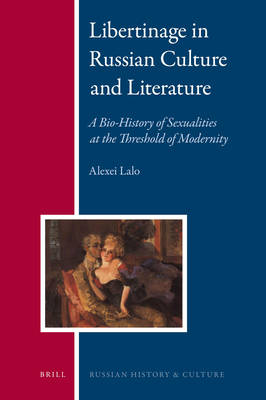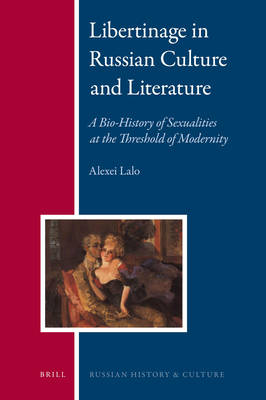
- Afhalen na 1 uur in een winkel met voorraad
- Gratis thuislevering in België vanaf € 30
- Ruim aanbod met 7 miljoen producten
- Afhalen na 1 uur in een winkel met voorraad
- Gratis thuislevering in België vanaf € 30
- Ruim aanbod met 7 miljoen producten
Zoeken
Libertinage in Russian Culture and Literature
A Bio-History of Sexualities at the Threshold of Modernity
Alexei Lalo
€ 276,45
+ 552 punten
Omschrijving
Much of the previous scholarship on Russia's literary discourses of sexuality and eroticism in the Silver Age was built on applying European theoretical models (from psychoanalysis to feminist theory) to Russia's modernization. This book argues that, at the turn into the twentieth century, Russian popular culture for the first time found itself in direct confrontation with the traditional high cultures of the upper classes and intelligentsia, producing modernized representations of sexuality. This Russian tradition of conflicted representations, heretofore misassessed by literary history, emerges as what Foucault would call a full-blown "bio-history" of Russian culture: a history of indigenous representations of sexuality and the eroticized body capable of innovation on its own terms, not just those derivative from Europe.
Specificaties
Betrokkenen
- Auteur(s):
- Uitgeverij:
Inhoud
- Aantal bladzijden:
- 304
- Taal:
- Engels
- Reeks:
- Reeksnummer:
- nr. 8
Eigenschappen
- Productcode (EAN):
- 9789004211193
- Verschijningsdatum:
- 9/09/2011
- Uitvoering:
- Hardcover
- Formaat:
- Genaaid
- Afmetingen:
- 163 mm x 246 mm
- Gewicht:
- 639 g

Alleen bij Standaard Boekhandel
+ 552 punten op je klantenkaart van Standaard Boekhandel
Beoordelingen
We publiceren alleen reviews die voldoen aan de voorwaarden voor reviews. Bekijk onze voorwaarden voor reviews.











